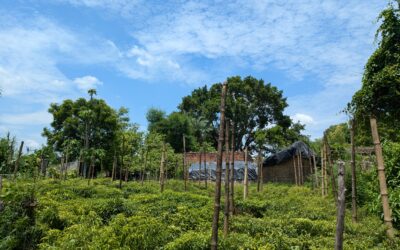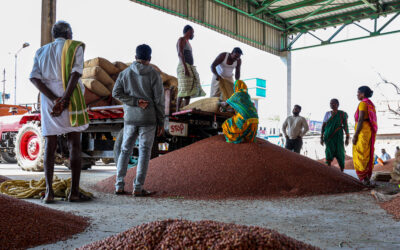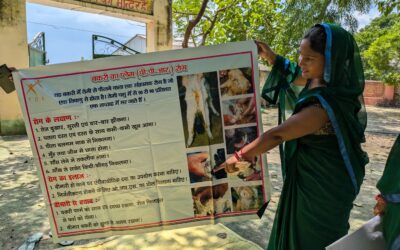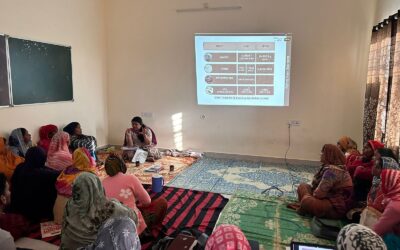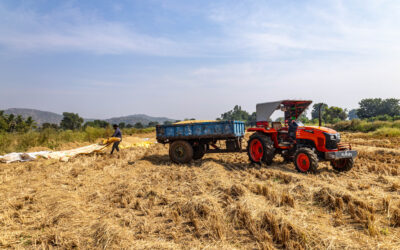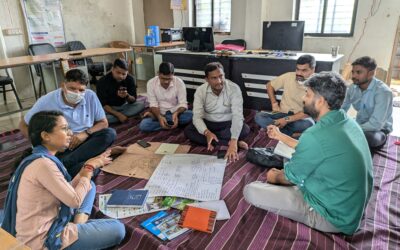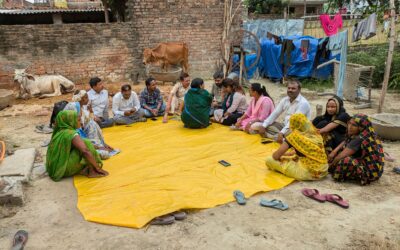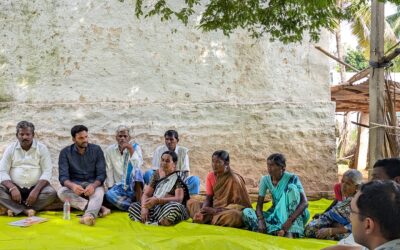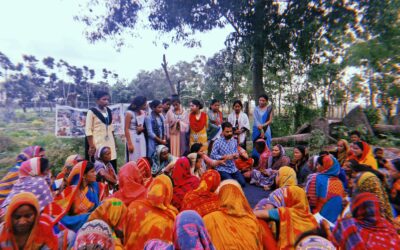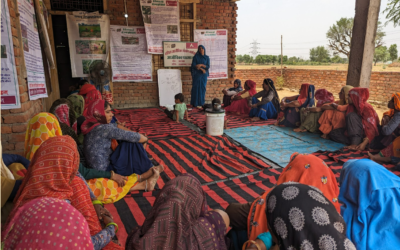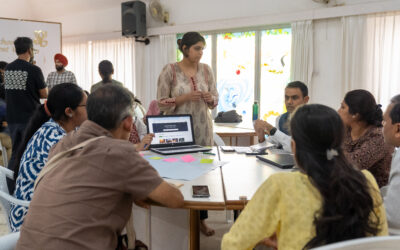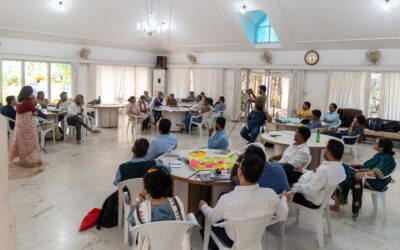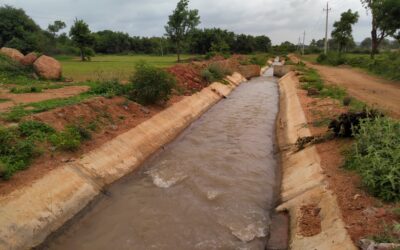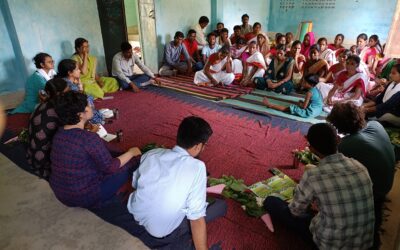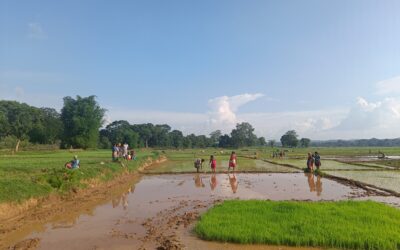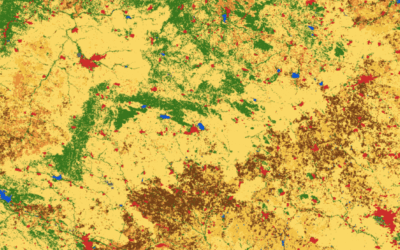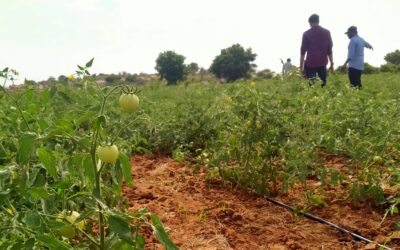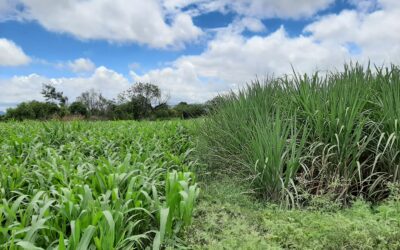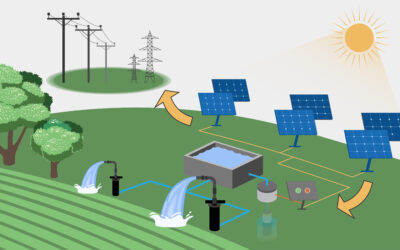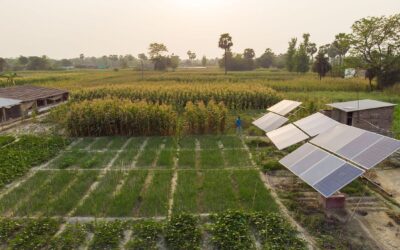We foster collaboration between social-sector organisations, enabling them to better address the challenges they face and expand their sphere of impact. This has benefitted organisations working on agriculture, waste management, and livelihoods, among other issues
Blogs
Urban Water Programme
Rural Futures Programme
Products and Platforms
Community and Outreach
From Doubts to Direction: How ‘Clinics’ for the Social Sector Can Spark Action and Collaboration
Clinics are virtual or offline sessions that promote knowledge-exchange between two groups: experts from an organisation or enterprise and people seeking solutions in the domain of rural livelihoods
The Social Sector Has a Scale Problem. Here’s How We Can Solve It
Build, operate and transfer models, master trainers, chatbots, call centres, and secondment can help the social sector effectively scale solutions
Downloading the Expert’s Brain: How to Decode Knowledge and Encode it into Solutions
Development practitioners sit atop a wealth of knowledge that goes undocumented. The Green Rural Economy is trying to make this more accessible.
How Can Social-Sector Organisations Find Solutions to Pressing Challenges?
The Green Rural Economy team experimented with various approaches to ensure social-sector organisations receive the help they need
Lessons from Netflix Matchmaker ‘Sima Aunty’ for Nonprofits
How nonprofits can find effective solutions to grassroots challenges and propagate these solutions to newer contexts
The Green Rural Economy Initiative: ‘Servicifying’ the Social Sector
Building a service-ready rural economy by enabling knowledge-sharing, breaking rigid solution models, and connecting grassroots problem solvers with seekers.
GRE Success Stories: Fostering Collaboration for Rural Development
The GRE Clinic has proven to be a catalyst for meaningful collaborations between organisations dedicated to rural development and sustainability.
The Odisha Sandbox: Advancing the Green Rural Economy Through a Place-Based Approach
By integrating the sandbox concept into the Green Rural Economy platform, we aim to create a structured environment that fosters innovation, collaboration, and the practical testing of solutions.
From Pilots to Scale: We Are Documenting Knowledge to Spread Effective Rural Solutions
WELL Labs has partnered with the Axis Bank Foundation to create playbooks, which could be how-to manuals, instructive videos and audio libraries for rural communities to learn and implement new solutions.
From Trainers to Playbooks: Insights on Improving the Green Rural Economy Platform
On January 23, we launched the Green Rural Economy platform at a two-day event at the School of Ancient Wisdom in north Bengaluru. In part 2, we delve into the features of the platform and the issues that need to be addressed for it to be an effective platform for change.
The Launch of a Consortium-Led Platform to Build Green Rural Economies
On January 23, we launched the Green Rural Economy platform at a two-day workshop at the School of Ancient Wisdom in north Bengaluru. This is part one of a blog series that summarises the intent of the platform and the way forward based on discussions at the event.
WELL Labs Partners with IHE Delft, ACIWRM to Develop Community-Driven Data Solutions
WELL Labs has partnered with ACIWRM and IHE Delft to understand and improve community-driven applications of remote sensing data in India’s Krishna river basin.
Field Notes from Lohardaga: Easing How Jharkhand’s Grassroots Workers Access Knowledge
As part of the Green Rural Livelihoods project, we visited Lohardaga and got insights from the ground on how grassroots organisations like PRADAN support the livelihoods of local communities. We summarise five insights in the second part of this series.
Field Notes from Lohardaga: How a Grassroots Organisation in Jharkhand Shares Knowledge
As part of the Green Rural Economy project, we visited Lohardaga and got insights from the ground on how grassroots organisations like PRADAN support local communities with best practices on land and water management. We summarise our learnings in this two-part blog series.
How Often are India’s Farming Patterns Changing? With IIT Delhi, We Turn to New Land Use Maps for Answers
Remote sensing data validated through reports from the ground can capture changes in spatial agricultural patterns down to plot level. This blog sheds light on land use maps developed by IIT Delhi called IndiaSAT.
Can Playbooks Promote Green Rural Livelihoods? Insights from Conversations With CSOs
Under the Green Rural Livelihoods project, we are working with Rainmatter Foundation to create how-to guides and playbooks.
Data to Insights: WELL Labs Tool Sifts Through Crop Statistics and Finds Cropping Patterns Within
In this blog, we explain how to use the agricultural statistics tool we developed that makes it easy to read and interpret data and thus build a more complete picture of a landscape and its cropping patterns.
How Are Farmers Likely to Respond to Solar Irrigation? Insights from Our Modelling Exercise Covering 6 Districts
To our knowledge, this is the first research study that has attempted to apply the agent-based modelling method in the context of solar irrigation and its likely impact on farmers’ incomes and groundwater sustainability in India.
Can Farmers Make More Money While Using Less Water?
Farmers need to be able to transition to crops that use less water but yield a higher profit. This was the basis of an agent-based modelling exercise we did in six states.

